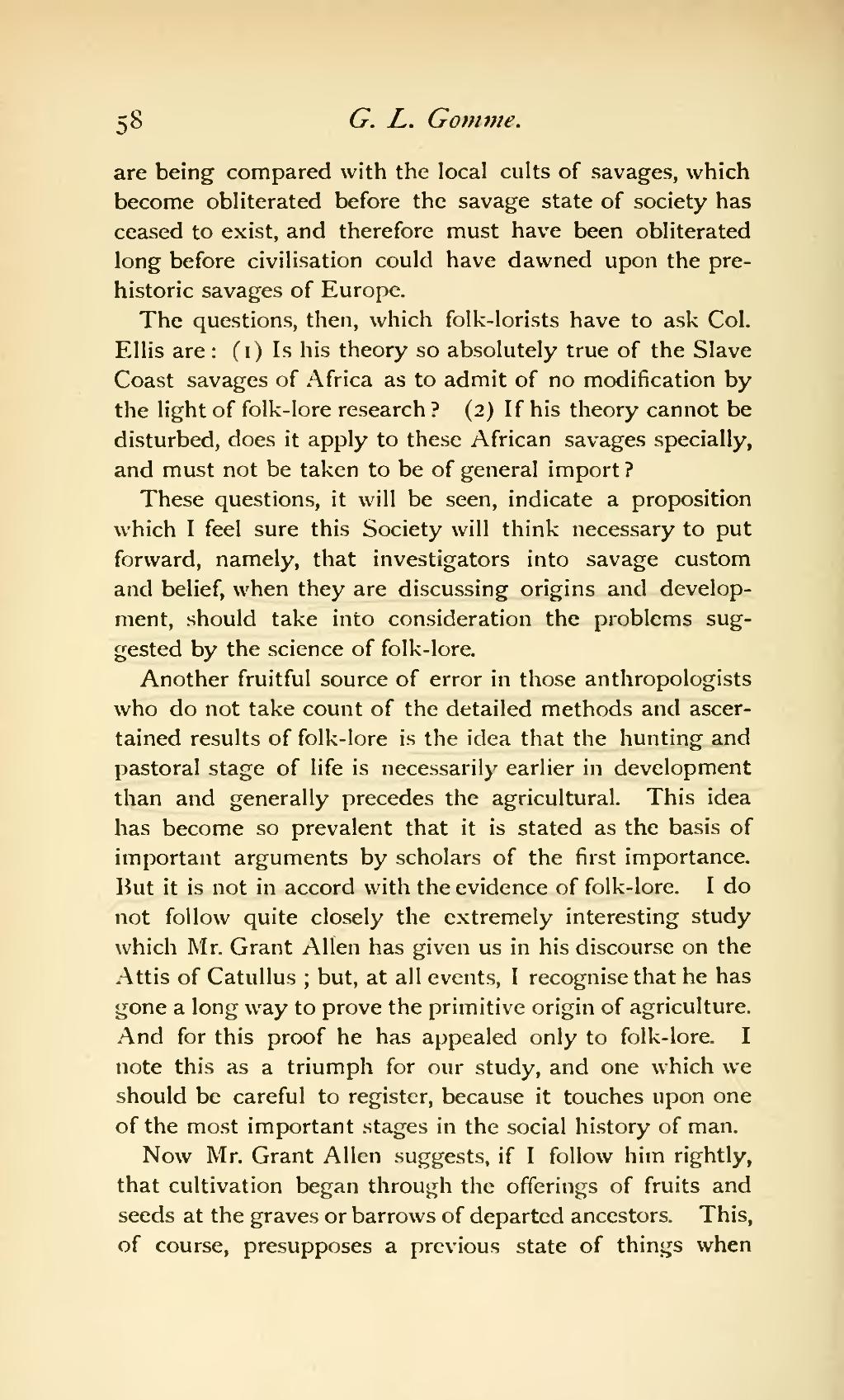are being compared with the local cults of savages, which become obliterated before the savage state of society has ceased to exist, and therefore must have been obliterated long before civilisation could have dawned upon the prehistoric savages of Europe.
The questions, then, which folk-lorists have to ask Col. Ellis are: (1) Is his theory so absolutely true of the Slave Coast savages of Africa as to admit of no modification by the light of folk-lore research? (2) If his theory cannot be disturbed, does it apply to these African savages specially, and must not be taken to be of general import?
These questions, it will be seen, indicate a proposition which I feel sure this Society will think necessary to put forward, namely, that investigators into savage custom and belief, when they are discussing origins and development, should take into consideration the problems suggested by the science of folk-lore.
Another fruitful source of error in those anthropologists who do not take count of the detailed methods and ascertained results of folk-lore is the idea that the hunting and pastoral stage of life is necessarily earlier in development than and generally precedes the agricultural. This idea has become so prevalent that it is stated as the basis of important arguments by scholars of the first importance. But it is not in accord with the evidence of folk-lore. I do not follow quite closely the extremely interesting study which Mr. Grant Allen has given us in his discourse on the Attis of Catullus; but, at all events, I recognise that he has gone a long way to prove the primitive origin of agriculture. And for this proof he has appealed only to folk-lore. I note this as a triumph for our study, and one which we should be careful to register, because it touches upon one of the most important stages in the social history of man.
Now Mr. Grant Allen suggests, if I follow him rightly, that cultivation began through the offerings of fruits and seeds at the graves or barrows of departed ancestors. This, of course, presupposes a previous state of things when
